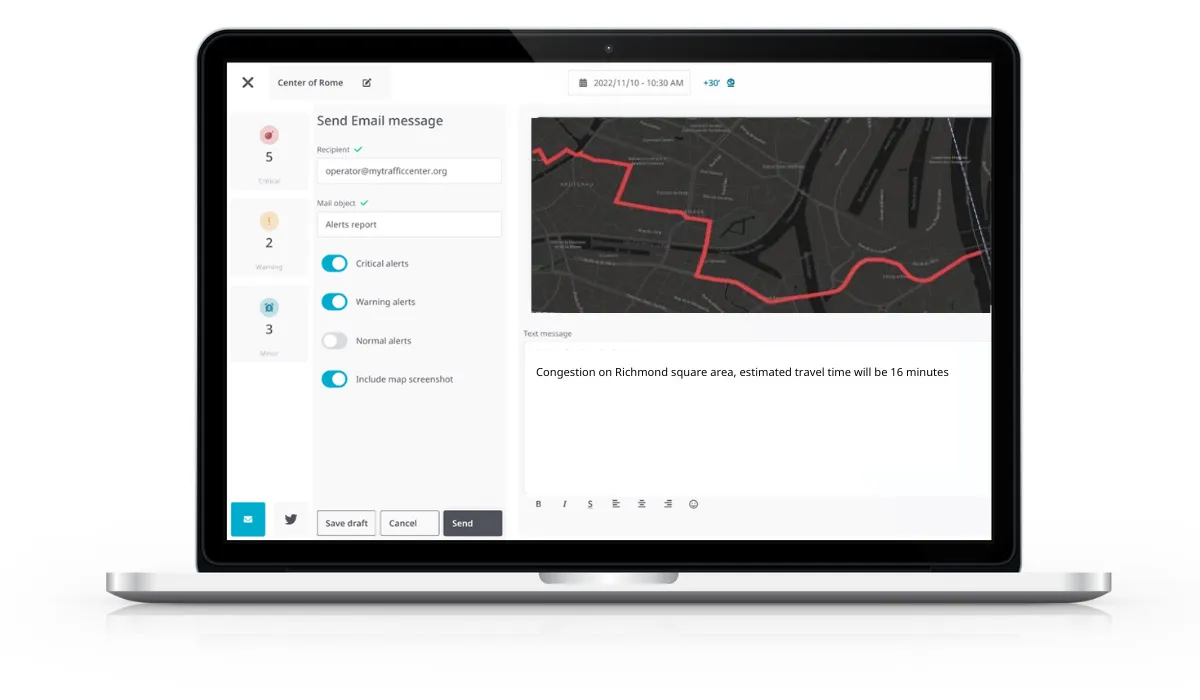
PTV Group has launched a cloud-based tool which uses machine learning to predict traffic congestion up to two hours in advance.
PTV Flows is marketed as "cost-effective and hassle-free", enabling transport authorities to "proactively manage traffic flows even without access to advanced traffic management infrastructures or detectors".
Using machine learning, PTV Flows analyses historical and current speeds as well as specific key performance indicators monitoring zones or corridors.
Identifying patterns and trends allows the self-learning system to generate forecasts for the next 30-120 minutes, with automatic and predictive alerts enabling traffic operators to anticipate potential issues and take proactive measures to mitigate congestion, PTV says.
The software embeds detailed maps and automatically-updated floating car data from providers such as TomTom, and either operates directly from the browser or is integrated via API into existing systems.
PTV CEO Christian Haas explains: "PTV Flows has been designed with cities and road authorities in mind that don’t have the time or the resources to set up and maintain an advanced traffic management infrastructure. This new lightweight tool will change their daily work."
PTV plans a Live Session on Thursday, 27 July 2023 to introduce the product.










